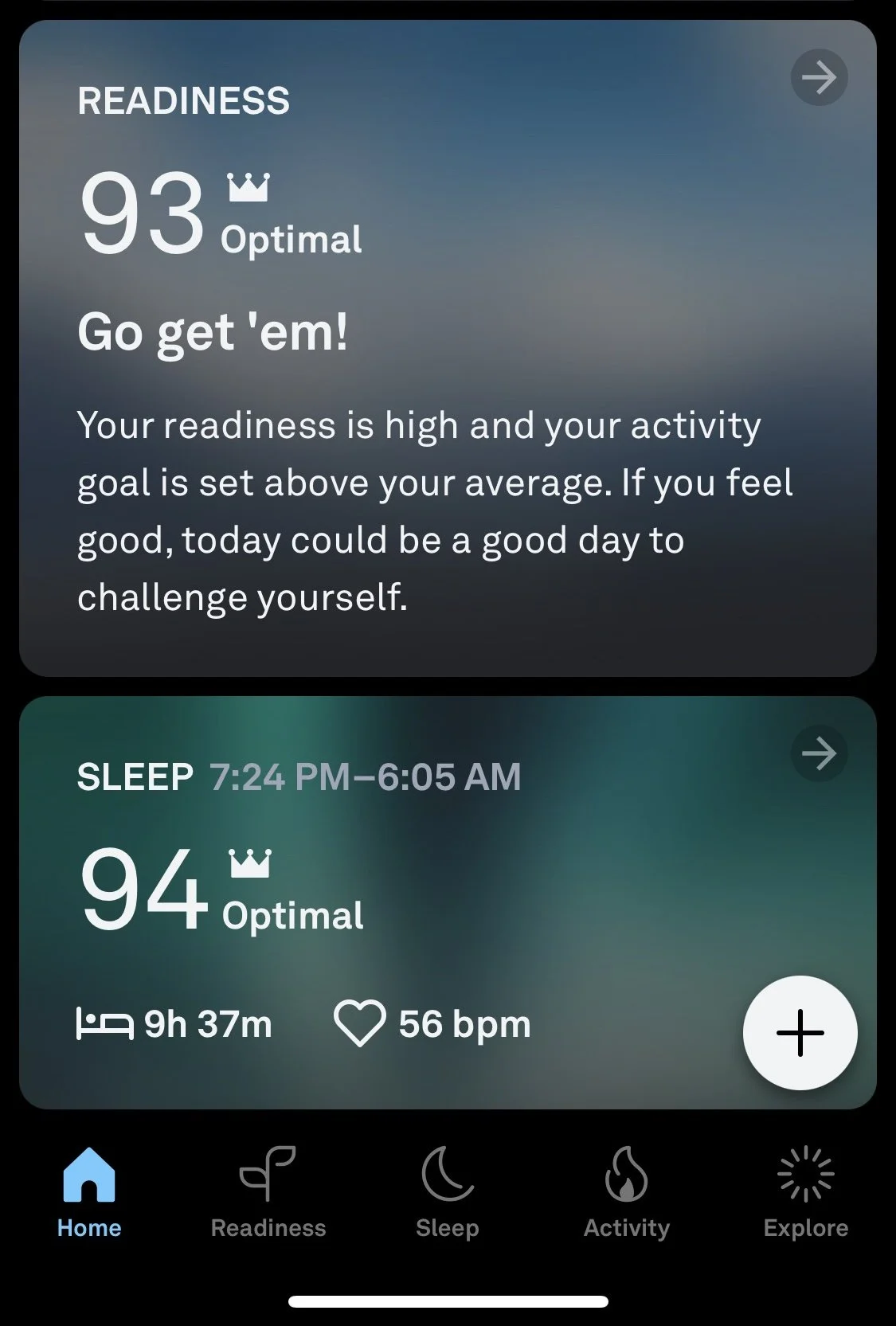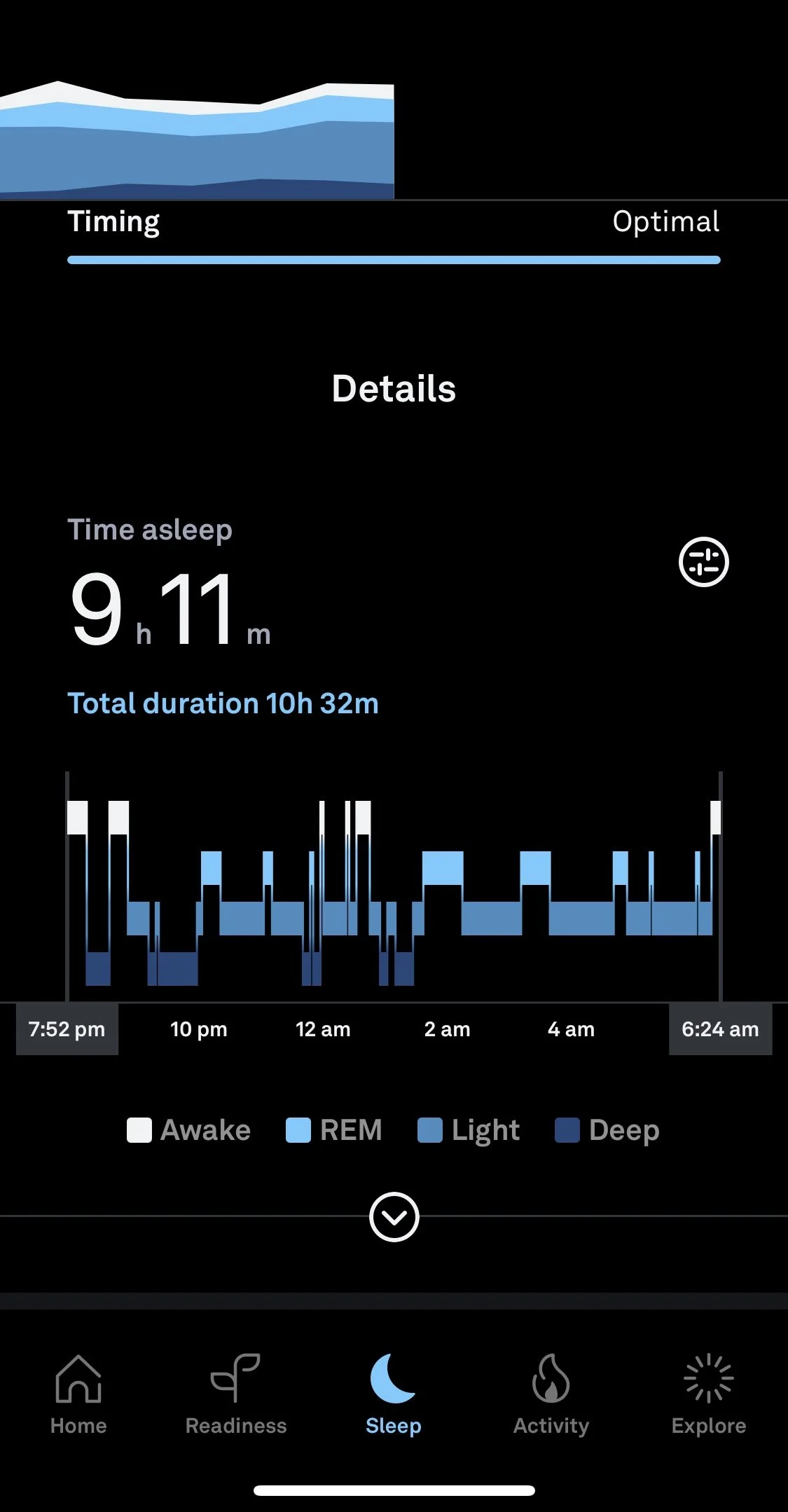10 Tips for Better Sleep
How can I get more efficient sleep?
Definitely one of the top questions I get from clients. So many of us struggle with sleep yet it often gets overlooked in the grand health-related checklist. But I’m here to tell you that deep sleep is totally sexy! So sexy in fact that it’s responsible for so many physiological processes we don’t even know are happening, ie fat cells shrinking, detoxification pathways opening up, melatonin & HGH getting released, brain cells rejuvenating and so much more!
Though there are several different causes of insomnia and/or broken sleep patterns including poor diet (lack of minerals and too much sugar and/or caffeine), hormone imbalances, stress, viruses, and other more acute health conditions, we can still benefit from overturning some rocks we may not have thought about. Check out these 10 tips for better sleep.
Disclaimer: This post includes affiliate links and products sold on this site including but not limited to nutritional supplements, ebooks, programs etc. which generate a tiny profit as the primary income of my blog at no additional cost to you. The greatest wealth is health so thanks for contributing.
10 Tips for Better Sleep
1. Choose your Exercise time wisely
Exercise can be a great de-stressor for the body, hands down. We’re flushing out toxins, burning excess calories, and getting circulation going. It’s also great for our mental health as it’s been shown to ease depression and boost self-esteem. For most of the population, moderate exercise is recommended (30 minutes 5 times per week as a baseline) for these reasons.
But it’s helpful to note that when we are exercising (especially vigorous exercise) our nervous system as shifted into sympathetic dominance (you know, sweating...blood pumping, running from a predator kind of thing) and many find that with cortisol (and other excitatory neurotransmitter) levels up high later in the day, (say after 5pm) it’s difficult to wind down and let the body relax.
One experiment I often do with clients who are having trouble sleeping is to schedule their exercise routines at different times of the day to see if timing indeed makes a difference. Switching to an earlier workout can feel like a major adjustment at first but will definitely make a huge difference long term.
2. Reset your circadian rhythm.
This means getting enough sunshine in the daytime (preferably in the morning).Open those curtains upon waking and go near a window when the sun comes up, or outside even for a few minutes.
Particularly in the earlier hours, sunshine is already at work helping us catch a restful sleep since it helps balance circadian rhythms. Then at night, it’s good to keep your room as dark as possible so the body produces melatonin (more below), a hormone and antioxidant that’s also crucial for deep sleep. Sunshine also gives you the added benefit of a mega mood boost. See tip #4 for more info on my blue light blocking glasses.
3.. Restorative Yoga
In these classes, we use props to help align the body so worrying about getting comfortable is the last thing on your mind. After setting up the props, we settle our body and let gravity take over. For more info on restorative yoga and some of my favorite poses, check out my post “Go deep with restorative yoga + 3 postures to nurture your spirit”.
4. Create a bedtime ritual
Allowing the body ample time to wind down before sleep can work some special magic. Since kids thrive on routine, we dedicate Tommy (6) and Maisie’s (4) last waking hour to bath-time, followed by books and/or a relaxing tv show. (The kids have been into the original Mister Roger’s Neighborhood lately since his message is so uplifting yet he has such a calming nature), though we sometimes skip television all together. Then I curl up with my own show (usually a 90’s sitcom), lecture (if I absolutely need to), or possibly a few pages of a book before bed. I try to stay away from too much social media, or news.
Avoid blue light since it can throw off our serotonin and melatonin levels as well as stimulating television, or video games after a certain time of night. If I need to work on the computer after sundown, I use these glasses that block the blue light.
The kids wear these whenever they’re in front of screens or days we can’t get outside because of weather. Circadian rhythms are very real, and when they derail because of stress, poor sleep hygiene, and too much blue light (especially after dark) we can run into trouble. These are true lifesavers!Use this link for 10% off.
5. Herbal teas & warm, cozy beverages (and limit caffeine and alcohol)
Warm beverages (but not too much so you can avoid waking up for too many potty breaks) My favorites for sleep are herbal teas especially Valarian root and Chamomile as they both have sedative, calming qualities. And my favorite bedtime elixir, Lunar Latte with ashwagandha, camomile, lavender, reishi, and passionflower with the slightest hint of vanilla blended into some almond or cashew milk.
Another favorite in the winter is Golden milk which gets you the added benefits of turmeric.
And it may go without saying, but important to remember that caffeinated beverages like coffees, teas, and sodas, are stimulants. Limit these after 2pm. As for alcohol, sure it may help you fall asleep initially, but it won’t be restful.
6. Bedroom Temperature is key
Keep your bedroom super cool. Even a bit colder than you think. Research has shown that our body temperature needs to drop a few degrees before we hit deep sleep. (aim for somewhere between 60-68 degrees and see what happens).
7. Stress Management
I know first hand that it’s extremely difficult to get sleep when you’re in a state of overwhelm. All of the tips provided thus far can help ease stress if we utilize them daily with a few additions. One thing that’s been helpful during months when the to-do list feels way too lengthy, is to keep a notebook next to the nightstand and when something comes up (often at 3am) you can quickly jot it down to get it out of your head. Literally picture it moving out of your head and onto the paper. For times when I’m just not feeling myself, I notice the best cure is connection. Talking to a friend, my mom, or one of my sisters on the phone makes a huge difference. EFT (emotional freedom technique) is also wonderful and can be done anytime, anywhere. EFT (tapping therapy) consists of tapping on certain meridians of the body while stating very specific mantras. “I’m having a hard time sleeping right now because I’m nervous about tomorrow’s presentation but I totally and completely accept myself.” The sequence gets repeated as often as needed, usually honing in on the core catalyst for the anxiety. Like anything, it’s a practice and you get better and better as you do it. More info on this technique can be found here.
https://www.thetappingsolution.com/
8. Relaxation using the senses
I love white noise for this reason. There are machines like this one (Tommy used this for a while, now it’s in Maisie’s bedroom) as well some great apps that work on airplane mode (which is where your phone should be at night) and create wonderful auditory environments that pave the way for a great night’s sleep. I love sleep stream 2 for it’s combination of nature sounds with tonal overlays and relaxing vibrations.
Essential oils like lavender, chamomile, valarian, clary sage, and bergamot have been used to enhance sleep since they provide a sense of calming to the nervous system. I put a few drops of lavender on my pillow at night or in a diffuser or drop some into the kids’ bathtub at night. Another great idea is a diffuser in your bedroom. We have one in our bedroom, my office, and one in the kid’s bathroom for when they take a bath.
Always go for pure 100% organic essential oils.
9. Track your sleep
Oura ring is one of my favorite wearable devices for sleep tracking. It breaks down your night of sleep into efficiency, restfulness, REM sleep, deep sleep, latency, and timing. It also measures heart rate variability, movement/exercise, and for ladies even a glimpse into your upcoming cycle. For me it serves as a great motivator, as many wearables do and gives you some insight as to what might be going on. Example, “Your resting heart rate was high falling asleep, here are some potential reasons.” Usually it’s one of these.
*Exercising too late
*Caffeine too late (everyone has different caffeine clearance)
*Eating too late
*Stress
*Fighting off an infection
*B vitamins or multi too late in the day
Also take note above, that deep sleep often occurs in the beginning of the night. This means going to bed too late can seriously hinder your ability to recuperate.
10. Supplementation
Though I believe lifestyle and behavioral shifts should always come first when dealing with sleep, oftentimes we can be struggling with a mineral or neurotransmitter deficiency that’s getting in the way. For this reason, we may need to call for some extra help. Here are a few things that myself and my clients have had tremendous success with.
Check out my instagram highlight “sleep” for a more detailed discussion.
Note: Specific recommendations and dosages should be discussed with your practitioner. For more information on my wellness dispensary, message me here.
Melatonin
Released by the pineal gland, melatonin is known to synchronize the body’s circadian rhythms and improve onset, duration, and quality of sleep. For these reasons it is often suggested as an alternative treatment to the (often addictive) pharmaceutical therapies for sleep disorders with less side effects. Melatonin also works as a potent antioxidant. Use code nutriyogi for 10% off.
Gaba-
If melatonin helps us fall asleep, Gaba can help us stay asleep. Gaba is an inhibitory neurotransmitter which helps to modulate the nervous system and says to the brain, “it’s ok to take a rest and stop thinking so much”. I often take one or two gaba calm capsules before a presentation or before bedtime if it’s been a full, busy day. The liposomal brands like Quicksilver are also wonderful. Use code nutriyogi for 10% off all water and wellness products.
Magnesium
Involved in 300+ reactions in the body, magnesium is one of the most important minerals (if not THE most important). Deficiencies, (found in much of the population), are associated with inflammatory conditions, anxiety, high blood pressure, migraine headaches, diabetes, fatigue, and (you guessed it)....sleep disorders.
I usually recommend absorbable forms like magnesium chelate, glycinate, citrate, and lactate.
For more benefits as well as food sources, check out this short post.
CBD- This is the non-psychoactive form of cannabis but works like a champ to mellow out the stress response. We have cannabinoid receptors throughout our body, AND did you know it’s even found in breastmilk? Nature wouldn’t give us these 2 things unless they were providing a benefit. Note that not everyone has the same effect from CBD oil and it certainly can depend on dosage. It’s also extremely important you purchase your products from a company that is third-party-tested for potency and purity to avoid heavy metals and other contaminants and opt for products made in the USA. We normally use Santa Cruz Medicinals.
References
https://pubmed.ncbi.nlm.nih.gov/28460563/
https://www.ncbi.nlm.nih.gov/pubmed/31851445
https://www.ncbi.nlm.nih.gov/pmc/articles/PMC3612440/
https://www.sciencedirect.com/science/article/abs/pii/S1087079200901102
https://www.sleep.org/articles/temperature-for-sleep/
https://pubmed.ncbi.nlm.nih.gov/21199787/
If you liked this post, you may want to check out:








